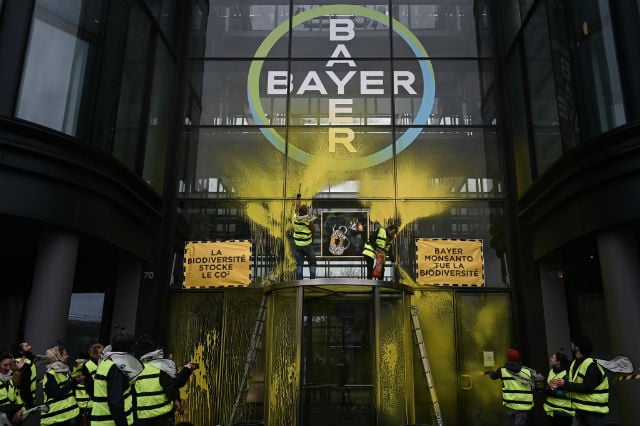A moratorium on MON810 corn – one of just two types of genetically altered food crops whose cultivation is approved by the EU – has been in place in France since March 2012.
The Council of State court noted in a statement that the moratorium had little legal basis.
It pointed out that EU regulations say such a ban "can only be taken by a member state in case of an emergency or if a situation poses a major risk" to the health of people or animals, or to the environment.
In a joint statement, Agriculture Minister Stephane Le Foll and Ecology Minister Philippe Martin announced the authorities would take a fresh decision on MON810 before the next sowing season in April 2014.
But they hinted that further moves against the corn lay ahead.
They "take note of the ruling and recall the goverment's undertaking… to maintain the moratorium on growing GM crops to prevent economic and environmental risks for other crops and bee-keeping," the statement said.
It added that the ministries would work on new directions to meet those preventive goals.Brussels cleared MON810 in 1998 for 10 years and Monsanto submitted a request in 2007 for it to be extended but the process has been effectively frozen since then.
In the absence of a formal decision on the renewal request, MON810 is still grown on a small scale, notably in Spain and Portugal whose governments have been more welcoming than other member states.
Among the reactions to Thursday's ruling, Greenpeace called on the authorities to reintroduce the ban.
MON810 encouraged the emergence of pesticide-resistant insects, it said, questioning also whether corn played a part in the worrying decline of Europe's bees.
The Small Farmers Confederation (Confederation Paysanne) said a fresh ban would "send a strong signal" to the United States — currently negotiating a free-trade pact with the EU — that France defended small-scale, environmentally friendly farming rather than "multinational lobbies."
MON810 is one of just two types of genetically engineered crops approved by the EU.
The other is BASF's Amflora potato, but the German conglomerate has stopped producing it in the EU. Europe also allows the imports of some GM products for animal feed.
In July, Monsanto announced it was giving up seeking approval for new biotech crops in Europe, and instead would focus on its conventional seeds business there.



 Please whitelist us to continue reading.
Please whitelist us to continue reading.
Member comments